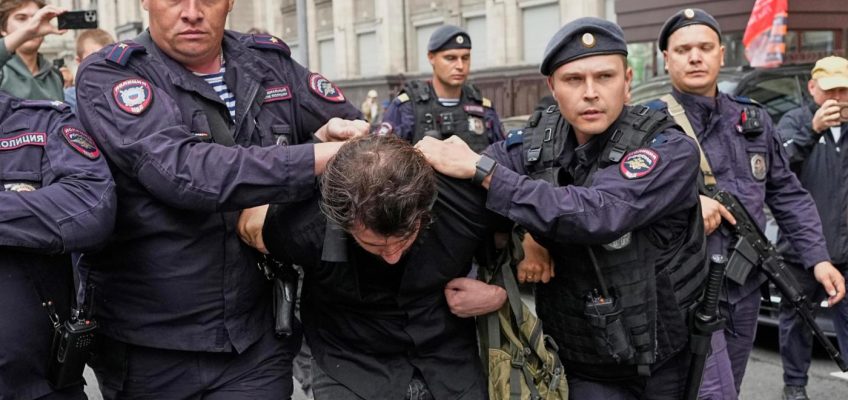MOSCOW (AP) — The Russian parliament’s upper house on Friday quickly approved a bill that punishes online searches for information officially branded “extremist,” the latest in a series of moves by authorities to tighten control of the internet.
Related Articles
Singer Cleo Laine, regarded as Britain’s greatest jazz voice, dies at 97
‘Why isn’t he paying?’ Trump’s golf visit to cost Scottish taxpayers
International Criminal Court refers Hungary to its oversight body for failing to arrest Netanyahu
US-led forces kill senior IS leader in Syria
Ukraine’s Zelenskyy says defenses are holding firm against Russia’s summer push
The legislation makes what it describes as “deliberately searching for and accessing extremist materials” online punishable by a fine of up to the equivalent of $64.
The bill, which was endorsed by the lower house earlier this week, is now set to be signed into law by President Vladimir Putin.
The official definition of extremist activity is extremely broad and includes opposition groups like the Anti-Corruption Foundation, created by the late opposition leader Alexei Navalny, and the “international LGBT movement.”
It’s not clear how authorities will track down violators.
Officials and lawmakers said ordinary internet users won’t be affected and only those who methodically seek outlawed content will be targeted. They didn’t explain how authorities would differentiate between them.
Russians widely use VPN services for access to banned content, but authorities have sought to tighten restrictions and close the loopholes. The state communications watchdog has increasingly used technology to analyze traffic and block specific VPN protocols.
In this photo released by the State Duma, deputies attend a session at the State Duma, the lower house of the Russian parliament, in Moscow, Russia, Tuesday, July 22, 2025. (The State Duma, Lower House of the Russian Parliament Press Service via AP)
Russian authorities have ramped up their multipronged crackdown on dissent after sending troops into Ukraine in February 2022.
Since then, online censorship and prosecutions for social media posts and comments have soared.
Multiple independent news outlets and rights groups have been shut down, labeled as “foreign agents” or outlawed as “undesirable.” Hundreds of activists and critics of the Kremlin have faced criminal charges.


Leave a Reply